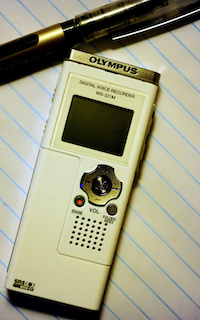Whether to record witness interviews is often a subject of debate between and among investigators and attorneys. From my perspective, I do not think there is necessarily a right or wrong answer, but I typically prefer and recommend that my investigators do not record interviews, particularly in criminal matters.
I firmly believe a recorder creates a barrier between the witness and investigator, and prevents a forthright exchange of information. A witness is more likely to be guarded about what they say when there’s a recorder in front of them, and may include information that is irrelevant and distracting to the issue at hand. Extraneous information is particularly burdensome in cases where a defense witness statement may become discoverable, as the unrelated issues they bring up can provide fodder for harassing cross-examination.
In 26 years of criminal defense investigations, I have only been called once to rebut a witness, and I’ve only recorded a witness on a handful of occasions. I view my interviews as “conversations” with a witness that aim to gather pertinent information; it is up the attorney to skillfully examine them.
That said, if it is necessary to record a witness, I believe the investigator should conduct a full interview first, without a recorder. Once everything is on paper, the investigator can then produce the recorder and ask the witness for permission to record while going back over the relevant details of the case. At that point, the investigator is directing the recorded interview, and should be sure to keep it to the point.


